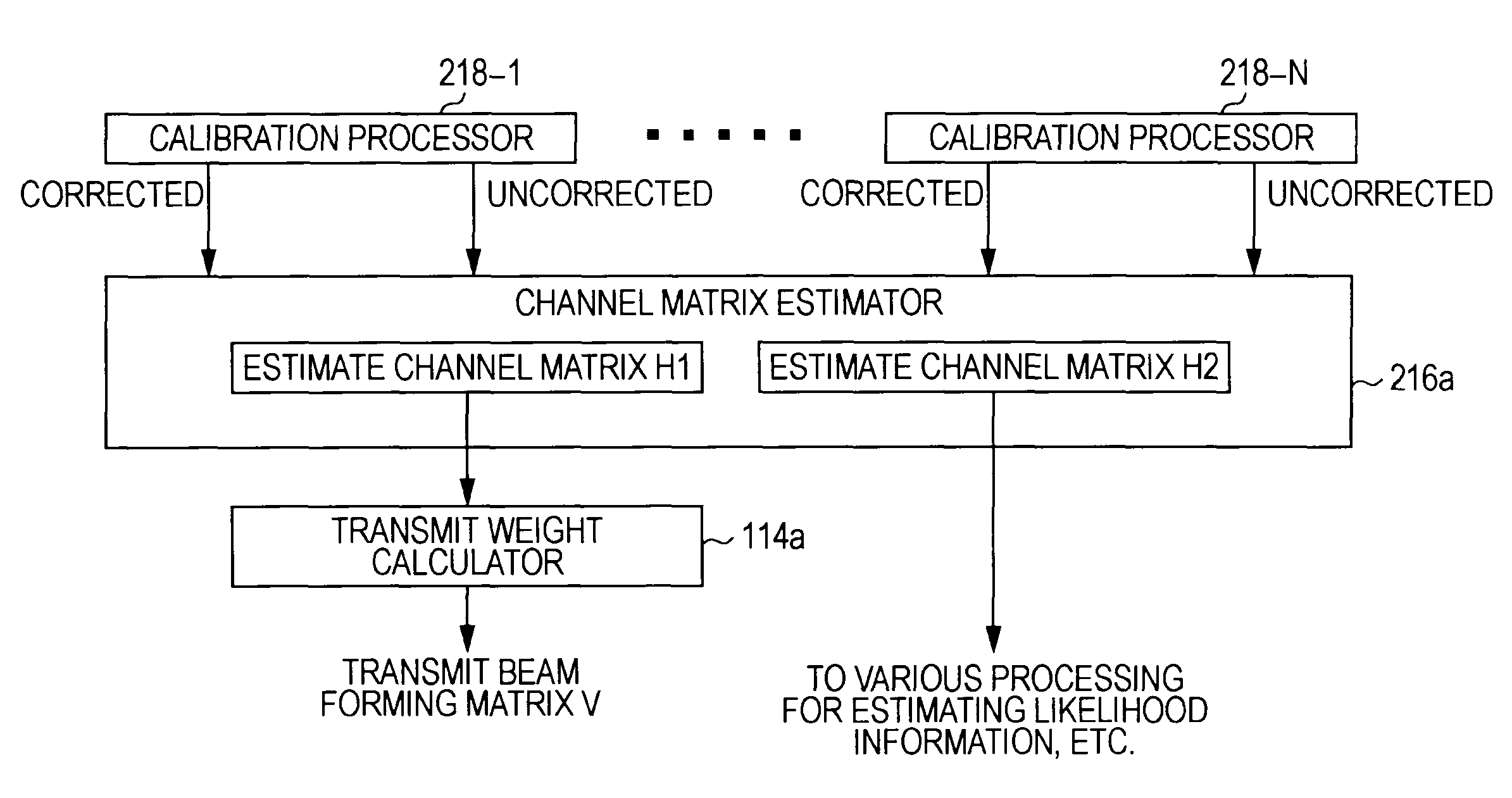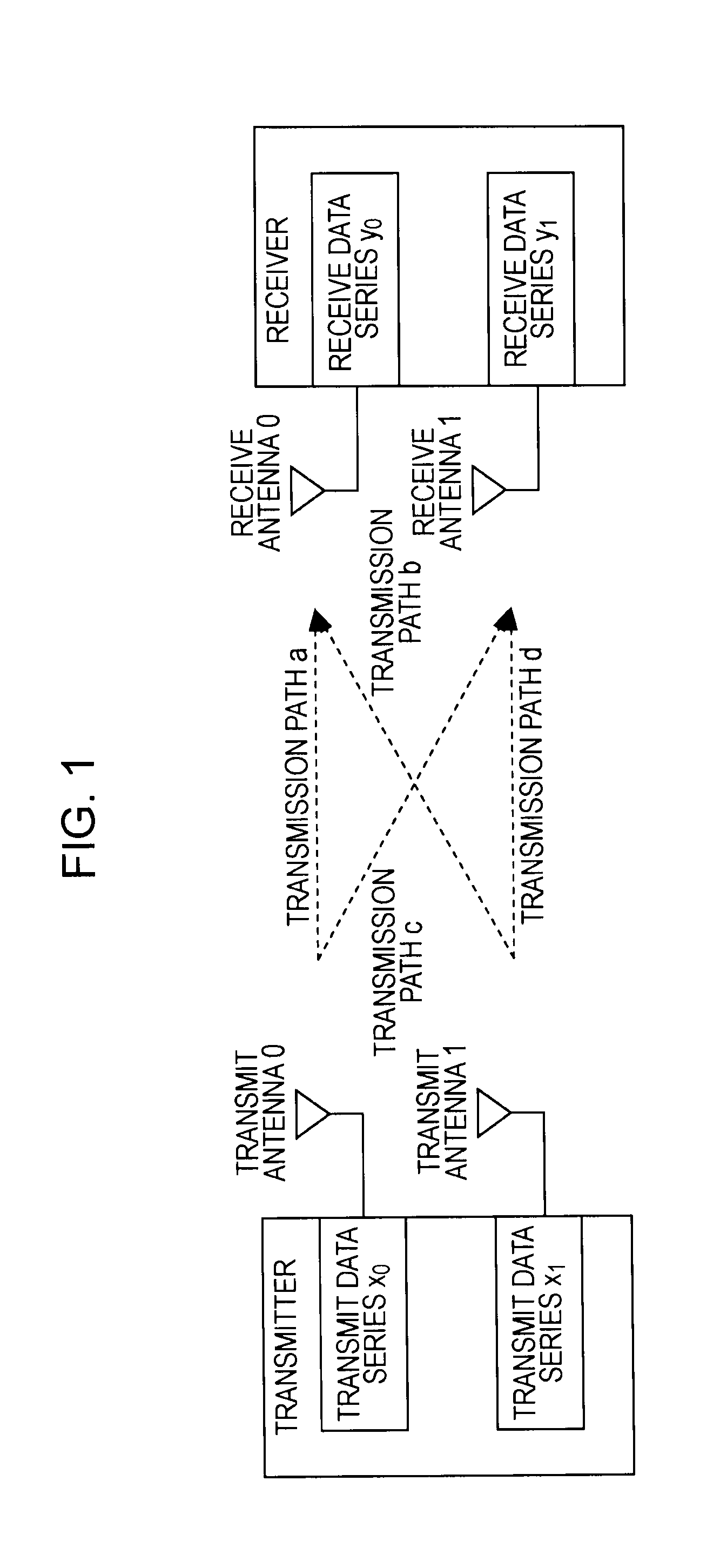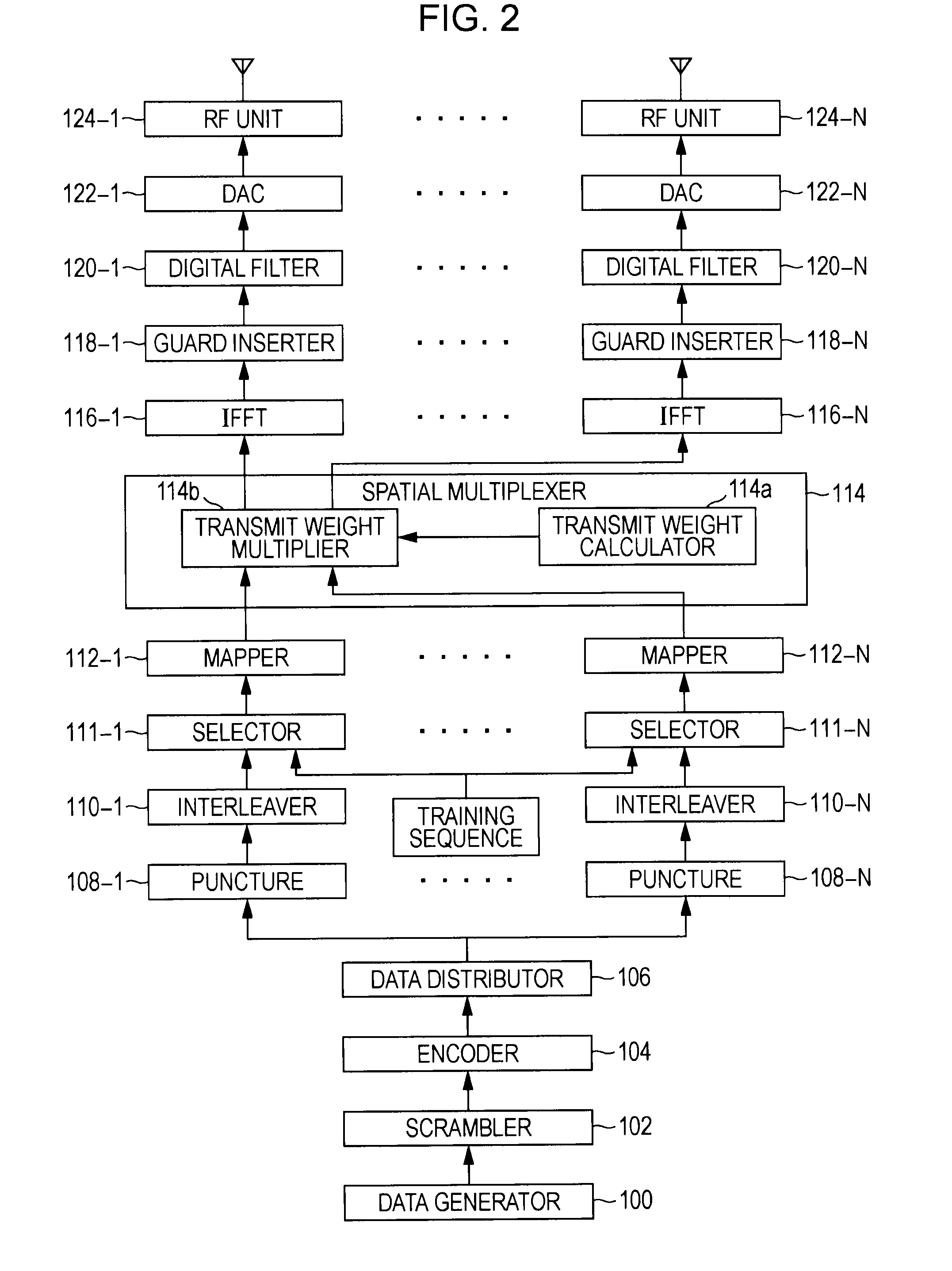Wireless communication apparatus, wireless communication method, and computer program
a wireless communication and wireless communication technology, applied in the direction of receiving receiver monitoring, electromagnetic wave modulation, polarisation/directional diversity, etc., can solve the problems of channel misrecognition, degradation of the characteristics of rf circuit chips, and imbalances in the transfer coefficients between the transmit and receive branches, so as to prevent error and curtail estimation error
- Summary
- Abstract
- Description
- Claims
- Application Information
AI Technical Summary
Benefits of technology
Problems solved by technology
Method used
Image
Examples
Embodiment Construction
[0053]Hereinafter, embodiments of the present invention will be described in detail and with reference to the accompanying drawings.
[0054]MIMO is a communication method that realizes a spatially multiplexed stream by providing a plurality of antenna elements at both the transmitter and the receiver. On the transmit side, a plurality of transmit data is multiplexed by performing space-time coding, distributed across a plurality of transmit antennas, and then transmitted on a channel. Likewise, on the receive side, a receive signal received by a plurality of receive antennas via the channel is separated into the plurality of transmit data by performing space-time decoding. Thus, the original data can be obtained without inter-stream cross-talk. By means of a MIMO communication method, the transmission capacity can be increased in accordance with the number of antennas, and without increasing the frequency band. As a result, an improved data transfer rate can be achieved.
[0055]FIG. 1 s...
PUM
 Login to View More
Login to View More Abstract
Description
Claims
Application Information
 Login to View More
Login to View More - R&D
- Intellectual Property
- Life Sciences
- Materials
- Tech Scout
- Unparalleled Data Quality
- Higher Quality Content
- 60% Fewer Hallucinations
Browse by: Latest US Patents, China's latest patents, Technical Efficacy Thesaurus, Application Domain, Technology Topic, Popular Technical Reports.
© 2025 PatSnap. All rights reserved.Legal|Privacy policy|Modern Slavery Act Transparency Statement|Sitemap|About US| Contact US: help@patsnap.com



